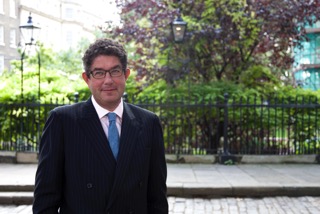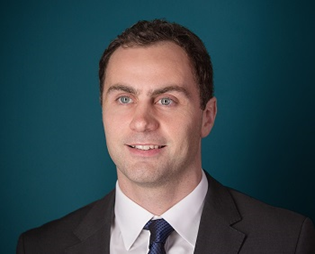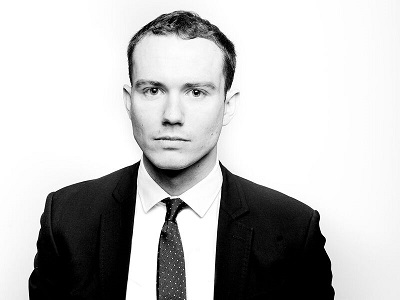Key sports law cases and developments to watch in 2017 - UK & Ireland
Monday, 09 January 2017As 2017 begins, we wanted to take a look at the coming year and provide insight into which sports law cases you may wish to follow in 2017.
In this feature, some of the leading sports lawyers in the UK & Ireland share their views on what they think are the key sports law issues and developments to follow in 2017.
We would like to thank all of the contributors to this article for taking the time out of their busy schedules to share their views with us.
Featured experts:
- Louis Weston, Barrister, 3PB
- Professor Jack Anderson, Queen’s University Belfast
- Nick Bitel, Consultant, Kerman & Co
- Daniel Lowen, Partner, Couchmans LLP
- Jon Walters, Partner, Charles Russell Speechlys LLP
- Keith Oliver, Head of International, Peters & Peters Solicitors LLP
- Gareth Farrelly, Trainee, Peters & Peters Solicitors LLP
- Satinder Hunjan QC, Barrister, 4-5 Gray’s Inn Square Chambers and Kings Chambers
- Nina Goolamali, Barrister and Head of the Sports team, 2 Temple Gardens
- Carol Couse, Head of Latin America Desk, Mills & Reeve LLP
- Genevieve Gordon, CEO, Tactic Counsel Ltd; Programme Lead, De Montfort University, Leicester (DMU)
- Alex Haffner, Managing Associate, Dentons
- Mark James, Director of Research, Manchester Law School
- Jamie Singer, Partner, Onside law
- Andrew Haywood, Partner, Employment, Penningtons Manches LLP
- Jeremy Drew, Head of Sports Law, Partner at RPC
- Nick De Marco, Barrister, Blackstone Chambers
- Alex Kelham, Managing Associate, Sports Business Group, Lewis Silkin LLP
- Cliodhna Guy, Legal Counsel
- Robert McTernaghan BL, Barrister at law, The Bar of Ireland
- Kevin Carpenter, Principal & Consultant, Captivate Legal & Sports Solutions Ltd
- Alfonso Valero, Principal Lecturer, Course Leader – Academic LL.M Programmes, Nottingham Law School
- Neil Swift, Partner, Peters & Peters Solicitors LLP
- Craig Hogg, Trainee Solicitor, Peters & Peters Solicitors LLP
We hope you enjoy the article. If you think there’s anything you would have liked to have seen be mentioned please feel free to tweet us @LawInSport or email us with your suggestions at
zLouis Weston
Barrister, 3PB

Crystal balls are liable to shatter. I would anticipate that there will be a year of review of the structure of regulation of sport from the major sports governing bodies with each learning from the Quinlan QC review and forthcoming Lewis QC tennis integrity review and Sheldon QC review of non-recent sexual abuse by the FA. The governing bodies will need to review their rules and policies to ensure that the challenges met in other sports will be avoided and/or corrected in that sport’s policies. The reality must though be that cases that cannot be foreseen will throw up the most controversy and concern - Who could have predicted that England would have appointed a manager who lasted only one match and left his post with a 100% win record? Perhaps the solution will lie in each sport having its own internal independent reviewing body such as the ICC anti-corruption unit oversight committee of which I am proud to be a member.
Professor Jack Anderson
Queen’s University Belfast

The story to watch for 2017 is the football sex abuse scandal in the UK. Similar to the Russian doping story (my story of 2016), it was not something uncovered by the sport’s regulators; rather by a whistle-blower - the incredibly brave Andy Woodward. The scale of the current revelations and the likelihood that they will encapsulate other sports in the UK will be one to watch in 2017.
Police inquires in the UK continue and it is hoped that accountability will follow. There may also, in time, be a role for a truth commission on the matter as premised on three fundamental principles: identification of the causes of any abusive ethos in football; an explanation of the context in which it occurred and was facilitated by and within the sport; and an assessment of the consequences for the future of the sport arising from such a tainted past.
Finally, in sports law matters, the US is generally where it is at. One to especially watch in 2017 relates to concussion and the manner in which a number of state courts have recently held that CTE is a latent brain injury and thus the statute of limitations does not start until discovery by the plaintiff. Such findings are not only likely to be game changers for future NFL concussion-related litigation and settlements but they are also likely in time to see premiums soar as insurance companies treat head injury less as an incidental and more as an intrinsic element of participation in contact sports such as rugby.
Nick Bitel
Consultant, Kerman & Co

For 2017, the big themes domestically will be governance and child protection issues. The new Governance Code as issued by Sport England and UK Sport will ensure that there will be many NGBs looking to lawyers to work out how to comply with the new requirements and trying to navigate changes through their current structures. The current media focus on child protection issues in football are unlikely to abate and will undoubtedly lead to many legal cases.
Internationally, 2017 will see sport continuing to battle with the European Commission over a range of issues including geo-blocking and portability and especially the regulation proposals for “Cross-Border Distribution of Television and Radio Programmes Online”. As the Sports Rights Owners Coalition have said, the draft regulation could knock down fundamental pillars of financing and distributing content in Europe resulting in less diversity and less consumer choice as well as being a serious threat to the finances of professional sport.
Daniel Lowen
Partner, Couchmans LLP

2017 looks set to throw up so many interesting issues – choosing a few is extremely difficult! Whilst Brexit won’t take place before 2018, during the course of 2017 we should gain an insight into its impact on sport in various areas, including (i) the new work permit arrangements to be implemented by the Home Office and The FA in respect of EU footballers, and (ii) whether UK clubs are likely to lose the ability to rely upon the Article 19.2(b) exception to FIFA’s prohibition on the international transfer of minors (whereby 16 and 17 year olds can move internationally if the transfer takes place within the EU or EEA) – losing the ability to utilise the Article 19.2(b) exception would be severely prejudicial to top flight UK clubs’ recruitment strategies.
FIFPro’s competition law complaint lodged with the European Commission, which challenges the transfer system under FIFA’s Regulations on the Status and Transfer of Players, is certainly one to watch. Image rights in football have, once again, attracted increased scrutiny from both the media and fiscal authorities – the need to ensure that image rights structures are properly established and justifiable from the outset is as important as ever. The unprecedented ambition and resources of Chinese Super League clubs has forced the traditionally dominant European clubs to sit up and take note – the record for transfer fees paid by Chinese clubs has been broken no less than five times in 2016 and no-one will be surprised if that statistic is mirrored in 2017. 2016 has seen eSport starting to fulfil its commercial potential and that will undoubtedly continue in 2017, whilst the industry continues to grapple with numerous governance and integrity issues in the face of its phenomenal growth.
Jon Walters
Partner, Charles Russell Speechlys LLP

The Code on Sports Governance will have a major impact on sports governing bodies in the UK. It will be interesting to see the pace of reform and how strictly UK Sport and Sport England enforce the Code, as we understand that ‘comply or explain’ will be their initial approach. However, with non-compliance now directly linked to funding, governing bodies are preparing to reform and 2017 will see the first significant steps taken in this regard. A desire at executive or Board level to reform is, of course, not the same as the ability to reform so we await to see whether fairly radical change to improve, for example, gender equality and ethnic diversity in fact takes place.
Keith Oliver
Head of International, Peters & Peters Solicitors LLP
Gareth Farrelly
Trainee, Peters & Peters Solicitors LLP

Watch this space!
As the US Department of Justice boldly goes where no international corruption enquiry has gone before in its continuing prosecution of those at the heart of FIFA during its dark years, 2017 may be the year when the full extent of decades of secret agreements, bribes and so called commissions that have blighted the World’s most popular spectator sport is finally
 revealed as the criminal cases come to court. Whether this will represent a watershed moment remains to be seen. Never has the FIFA strapline that blazed its way across Brazil in the 2014 World Cup “For the Game. For the World” seemed so poignant.
revealed as the criminal cases come to court. Whether this will represent a watershed moment remains to be seen. Never has the FIFA strapline that blazed its way across Brazil in the 2014 World Cup “For the Game. For the World” seemed so poignant.
And finally what of the forgotten athletes deprived of glory and substantial commercial return by the Russian Olympic authorities collective amnesia regarding the level playing field the sport is supposed to represent. Whatever the legal challenges, will the IOC set in train for those athletes whose near misses (fourth is nowhere) were in truth bronze, silver or even gold medals had it not been for the drug enhanced cheating of the false winners? Again only time will tell.
Satinder Hunjan QC
Barrister, 4-5 Gray’s Inn Square Chambers and Kings Chambers.

A challenging year like no other!
Legal leadership will be critical in the coming year. Each of the challenges have strong legal implications. It is clear that “anti-doping” measures will properly need strong implementation, in the business of sport strong governance in all aspects to secure the credibility of sport and regrettably, the necessity of detailed investigations into allegations of “abuse”.
Head injuries and concussive injuries including the protection of professionals, amateurs and particularly children engaged in sport will gain increasing momentum; there is inevitably likely to be an increase in actions involving concussive injury.
All of the above set against the backdrop of the unstinting support from the fans of sport – the thirst for sport remains unquenched. It is of the utmost importance that those involved in sport and, in particular, the legal governance of sport ensures that the fans are supported, support for all is not only encouraged but facilitated and that legacies which are promised are carried through.
Nina Goolamali
Barrister and Head of the Sports team, 2 Temple Gardens
 The historical sex abuse scandal in football so soon after the major Jimmy Savile abuse report has resulted in renewed calls from parents for enhanced protection for their children playing sport at grassroots level.
The historical sex abuse scandal in football so soon after the major Jimmy Savile abuse report has resulted in renewed calls from parents for enhanced protection for their children playing sport at grassroots level.
Whilst Sport has made considerable progress in the area of child safeguarding, I consider that 2017 will see sports governing bodies raising the bar in terms of proactively pursing allegations of abuse and increasing the quality of care given to those minors entrusted to them. Attention will be firmly focussed on the findings and practical guidance set out in the Government Review on the Duty of Care to Participants in Sport led by Baroness Tammi Grey-Thompson which is due to be published in the New Year.
Carol Couse
Head of Latin America Desk, Mills & Reeve LLP

Brexit. Whilst not a sports law issue per se, its impact on football, like any industry, will be far reaching. Given the uncertainty of the timing (and mechanics) of commencing the process of leaving the EU, and even more uncertainty over what the landscape will look like post Brexit, what can clubs and players do? I envisage that Premier League clubs will look to ‘stockpile’ EU players in the short term, particularly younger players, in light of the possible loss of the exemption under Article 19(2)(b) of the FIFA RSTP to general prohibition of the transfer of minors. In practical terms, this will mean that if the UK is no longer part of the EU/not a member of the EEA, other European clubs will have the competitive advantage of acquiring players with EU nationality from the age of 16 (often just paying Training Compensation), whereas UK clubs will have to wait until these players turn 18 and undoubtedly pay transfer fees at this stage.
Any changes to the current work permit or 'Governing Body Endorsement’ system will be determined by the nature of free movement rights (if any) retained in a post Brexit world, but its unfathomable that truly world class players (EU or otherwise) will prevented from plying their trade in the UK. However given value of sterling, these international acquisitions may simply cost clubs more in the short to medium term.
Genevieve Gordon
CEO, Tactic Counsel Ltd; Programme Lead, De Montfort University, Leicester (DMU)

For 2017 again, as last year, my penchant for duty of care again comes to mind. Our work with clients at Tactic Counsel this year has again shown the many ways athletes are often collateral damage in the bigger picture of winning and achieving. One would hope the government's Sport Duty of Care Review will go some way to identifying a true reflection of professional sport and marry it accordingly with the professionals desire to be an athlete encompassing effectively the role of sports organisers and the legal requirement for a reasonable duty of care within sport.
Alex Haffner
Managing Associate, Dentons

Clearly a massive issue for this year, and one which is already centre stage, is safeguarding in sport. We've all seen the recent headlines and testimonies of those affected. From a legal perspective, all sports are going to have to very carefully at their duty of care obligations to their participants and what structures they put in place to ensure they mitigate the liability issues involved in the future.
With the UK government due to put in their Article 50 letter to the EU next March, 2017 will also be a year in which sport (like all industries) will need to start engaging more closely in the BREXIT debate and sports bodies assess how they may be affected by any withdrawal from the EU (whether on a hard, soft or any other basis). There are lots of legal issues this throws up of course, but for me some of the real "biggies" are free movement of labour and the rights of citizens, currently resident and performing/playing in the UK, to remain here for professional purposes.
Mark James
Director of Research, Manchester Law School

It is likely that the various strands of the Hillsborough investigation will come to a conclusion in 2017. This could result in criminal, civil and disciplinary action being taken against a range of officers who were on duty on the day and others who have been identified as being actively involved with the subsequent cover up. Hillsborough has already resulted in more legal developments than any other single incident, including appellate level cases, Acts of Parliament, new forms of enquiry and investigations, and there is every reason to suspect that there will be more such developments in the coming years.
Jamie Singer
Partner, Onside law

The various investigations into child abuse within sport look likely to become huge sports law issues in 2017. There will, of course, be criminal elements regarding alleged abuse by individuals, but questions of governance, federation responsibility, duties of care, safeguarding, reporting obligations and non-disclosure will also be relevant. It could be a very sensitive and complex issue for sports lawyers to address in 2017.
Jeremy Drew
Head of Sports Law, Partner at RPC

An obvious issue to keep an eye on is the recent very disturbing allegations concerning widespread child abuse in football. Not only will we see the developments of that investigation next year and beyond, it is possible that any inquiry or investigation uncovers or stimulates similar allegations in other sports.
We are particularly aware that the IAAF 2017 World Athletics Championships in London will present a great spectacle but also the usual branding issues in respect of ambush marketing, especially given that this is widely anticipated to be the last event that the great Usain Bolt competes in.
We also expect that sports data and the knock-on effect on sports betting will come to the fore, in both traditional sports and in eSports.
NICK DE MARCO
Barrister, Blackstone Chambers
 2017 looks set to be another year of dynamic growth in the sports sector across Asia. The massive state driven investment into Chinese football began to make ripples in 2016 – with the Chinese super league outspending the Premier League in last year’s January transfer window for the first time ever. As well as a string of top international players going to China, not only those at the end of their career, investment from China and other Asian countries into European football has also increased. A number of the top football clubs in countries like England and Italy now have investment from Chinese, Malaysian, Indonesian or Thai owners.
2017 looks set to be another year of dynamic growth in the sports sector across Asia. The massive state driven investment into Chinese football began to make ripples in 2016 – with the Chinese super league outspending the Premier League in last year’s January transfer window for the first time ever. As well as a string of top international players going to China, not only those at the end of their career, investment from China and other Asian countries into European football has also increased. A number of the top football clubs in countries like England and Italy now have investment from Chinese, Malaysian, Indonesian or Thai owners.
The increased commercial activity in sport across Asia means an inevitable growth of sports law; where disputes increase in value they require the development of a more specialist legal sector. A number of small practitioners and firms across the region are beginning to develop a network of sports law professionals in an increasingly active international and commercial sector. I was impressed at the enthusiasm for sports law when I spoke at the founding conference of the Sports Law Association of Malaysia in December, and also to see the efforts of the Kuala Lumpur Regional Centre for Arbitration (KLRCA) to attract more of this work.
It is in emerging areas such as this that LawInSport can play a key role in helping to develop a network and exchange of ideas, news and competencies essential for the growth of sports law in Asia.
Andrew Haywood
Partner, Employment, Penningtons Manches LLP

I think 2017 will be a progressive year for sports in some ways but not in others. The shameful football child abuse scandal has highlighted the imminent importance and need to safeguard children and vulnerable adults in sports. On a lighter note, however, is the fascinating legal battle over Denny Solomona’s contract which could potentially impact both rugby codes and possibly create a new precedent when crossing over disciplines. Athletes gambling on sporting events, particularly those they participate in, will come under the microscope from a regulatory and employment perspective and, of course, there will be a rematch in the Müller case.
Alex Kelham
Managing Associate, Sports Business Group, Lewis Silkin LLP

The events of 2016 will have undoubtedly made sports organisations, clubs and individuals more alert to the consequences of reputational damage. I suspect 2017 may therefore be the year when we see more proactivity in terms of reputation protection. We have already seen an indication of this with Mexican F1 driver Sergio Perez taking swift action to distance himself from a new sponsor when it issued a tweet relating to Donald Trump's infamous 'Mexican Wall'.
The UK media have played a significant role in bringing sports organisations to account in 2016 and must be applauded for that. However, history tells us that they can sometimes overstep the mark, particularly when they get the bit between their teeth in relation to one particular story. While most UK based sports stars and organisations are likely to take a preventative approach to reputational damage (taking PR advice and undertaking media training for example), my prediction for 2017 is that even if we don't see high profile cases, lawyers will be kept busy. Whether this relates to contractual enforcement of a disrepute clause, or the potential of bringing a defamation claim, I believe, having seen the fallout of 2016’s issues, sports bodies will be on the front foot this year – particularly when it comes to protecting their reputations.
Cliodhna Guy
Legal Counsel

I think Anti-Doping and the repercussions from McLaren will continue for 2017 and what actions will be taken to address the various allegations in the report will interesting. It remains to be seen as to how Russia can be re-integrated and if any further sanctions will be imposed.
Integrity will continue to be a hot topic across sports internationally and I believe that sports bodies will continue to introduce and improve regulations in this area. The progress in the establishment of the IAAF Athletics Integrity Unit will be followed closely.
In UK and Ireland we are seeing increased requirements from statutory bodies for sports governing bodies often linked to funding criteria. These have to be balanced with the voluntary and grassroot aspects of sports which are vital to continued development. While the professionalisation of sporting bodies is necessary from a governance and organisational aspect the importance of the volunteers can not be underestimated and may be at risk. There is also the interplay between national federations and international federation requirements for autonomy from government to be observed and if that somewhat artificial segregation can be continued to be imposed given the dependence of sporting bodies on funding from governments in order to continue their programs. In Ireland we have had the recent announcement of possible quotas requirement for women in governing bodies and the suggestion that this will form part of the funding criteria and it remains to be seen how, and if, this will be applied.
Also Ireland specific will be the continuing saga following Mr. Hickey's arrest at the Rio Olympic Games and the management of tickets by the Olympic Council of Ireland. The upcoming elections in the OCI will be closely watched at a national level as well as any developments in the legal proceedings involving Mr. Hickey.
Robert McTernaghan BL
Barrister at law, The Bar of Ireland

2017 has crept upon us; I feel a good starting point is to acknowledge WADA’s new whistle blowing policy that came into force four days ago. I do however think that the sex abuse in football will be at the forefront of issues in 2017, both in the UK and in Ireland judging by the Irish Football Associations response to the issue.
In Ireland in 2017, aside from the IOC ticket scandal involving Pat Hickey et al and its numerous ongoing governmental, ministerial and judicial inquiries, will be the Gambling Control Bill which was first tabled in 2013 then shoved into a governmental department drawer. The Bill will finally be enacted this year and will regulate problem gambling, money laundering and the book makers with the creation of a new watchdog. Gambling has always been a problem for sports professionals; we only need to look at the two Irish boxers at the Rio Olympics who received IOC reprimands. All of the bets were investigated by the IOC and the pair will now have to follow the educational programme set out for them by the IOC in order to be eligible for the next Olympic Games which will be held four years from now in Tokyo.
Kevin Carpenter
Principal & Consultant, Captivate Legal & Sports Solutions Ltd

There are two issues that will continue to develop in 2017 which I believe are briefly worth mentioning. First, as a non-executive director for the British Volleyball Federation, a National Governing Body who has consistently been rejected for any funding whatsoever since the London 2012 Olympic Games, I will be interested to see how the appeals against the recent funding decisions by UK Sport are decided. Also, whether the lawyers will be creative in looking for other avenues of redress as there is certainly significant discontent about the current approach which focuses on the number of medals achieved by Team GB, meaning the system is skewed against team sports and those who play them.
The second issue which peaks my interest, not just as a sports lawyer but as a rugby union referee, is the increasing tightening of the laws (and their interpretation) regarding foul play in rugby union, particularly as it pertains to contact with the head and resultant concussions. The players (especially in professional rugby) are ever stronger and quicker and yet World Rugby, the national unions and referees, are expecting what is in essence a heightened duty of care from players who only have a split second to make decisions. This is highlighted most starkly when slow-motion replays of high impact incidents are used which I believe creates an unnatural analysis of such a dynamic sport.
Alfonso Valero
Principal Lecturer, Course Leader – Academic LL.M Programmes, Nottingham Law School
 If 2016 was the year of the Brexit referendum, 2017 will be even more important in that regard as it should be when the UK government officially notifies the process of withdrawal from the European Union. With so many unknowns (will the UK remain in the internal marked somehow), it is the time for sports governing bodies to plan ahead or else the threat of a European break away league (particularly in football) may take hold amongst the clubs. The dream of more home-grown players through the ranks is legitimate and should be encouraged, but the UK leagues may find themselves suffering an increased spiral of costs: home-grown players aware of their value and limited marked and foreign players being even more costly than before due to the limited number of spots. I can see the clubs taking the initiative to prevent those problems, so the governing bodies need to get a grip.
If 2016 was the year of the Brexit referendum, 2017 will be even more important in that regard as it should be when the UK government officially notifies the process of withdrawal from the European Union. With so many unknowns (will the UK remain in the internal marked somehow), it is the time for sports governing bodies to plan ahead or else the threat of a European break away league (particularly in football) may take hold amongst the clubs. The dream of more home-grown players through the ranks is legitimate and should be encouraged, but the UK leagues may find themselves suffering an increased spiral of costs: home-grown players aware of their value and limited marked and foreign players being even more costly than before due to the limited number of spots. I can see the clubs taking the initiative to prevent those problems, so the governing bodies need to get a grip.
Neil Swift
Partner, Peters & Peters Solicitors LLP
Craig Hogg
Trainee Solicitor, Peters & Peters Solicitors LLP
 On 18 May, the Football Association ratified lukewarm reforms [1] to the composition of its governing council and board, meaning from corporate governance perspective, at least, 2017 is set to be the year that wasn’t for football.
On 18 May, the Football Association ratified lukewarm reforms [1] to the composition of its governing council and board, meaning from corporate governance perspective, at least, 2017 is set to be the year that wasn’t for football.

Using the new UK Sport Code for Sports Governance as its compliance model—which mandates a low 30% target for gender diversity on boards—The FA Board is now required to be comprised of at least three women and seven men by 2018.
Other changes include the a rule against the appointments of new FA Council Senior Vice Presidents and Life Vice Presidents, and FA Council membership limits of three terms capped at three years per term with effect from 2018-19.
No overt steps have been taken to address the inward-facing culture of governance within the organisation, which is run almost entirely by the FA Council, and whose Board is heavily weighted towards Premier and Football League representatives.
The reforms will come as a disappointment to many who saw a historic vote of no confidence cast by a small number of MPs in February as an opportunity to reform The FAs outdated structure, but raise interesting questions looking forward as to whether there is a public appetite, and political will, for a new independent regulator.
References|closed
[1] The FA, ‘A Significant Moment for the FA, as Governance Reforms Confirmed by Shareholders’, 18 May 2017, last accessed on 26 May 2017, https://www.thefa.com/news/2017/may/18/fa-governance-reforms-180517
- Anti-Corruption Anti-Doping Arbitration Athletics Betting Boxing Brexit China Court of Arbitration for Sport (CAS) Cycling Data Dispute Resolution Employment Esports European Union FIFA Football Governance IAAF Athletics Integrity Unit Integrity International Association of Athletics Federations (IAAF) International Olympic Committee (IOC) International Tennis Federation (ITF) Ireland Olympic Paralympic Player Transfers Player Welfare Regulation Rio 2016 Russia Sponsorship United Kingdom (UK) World Anti-Doping Agency (WADA)

 Global Summit 2024
Global Summit 2024